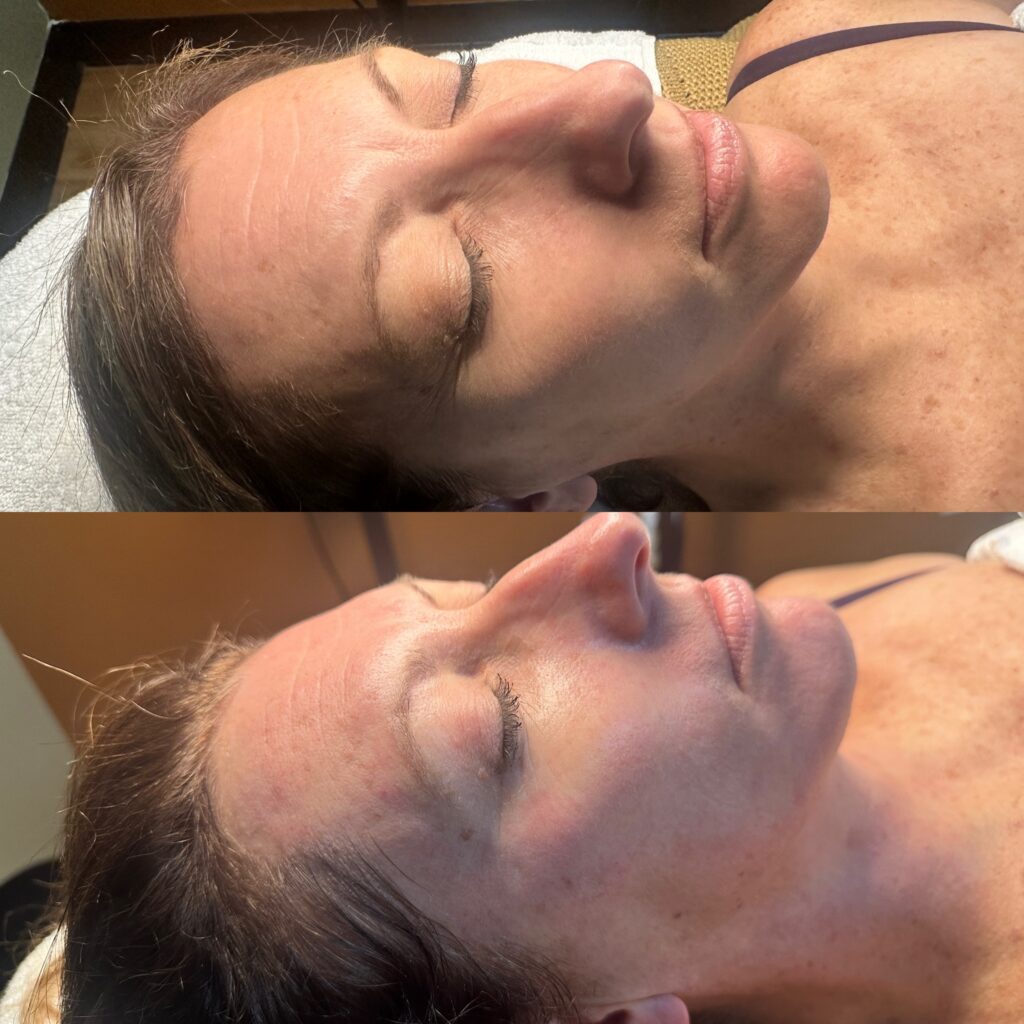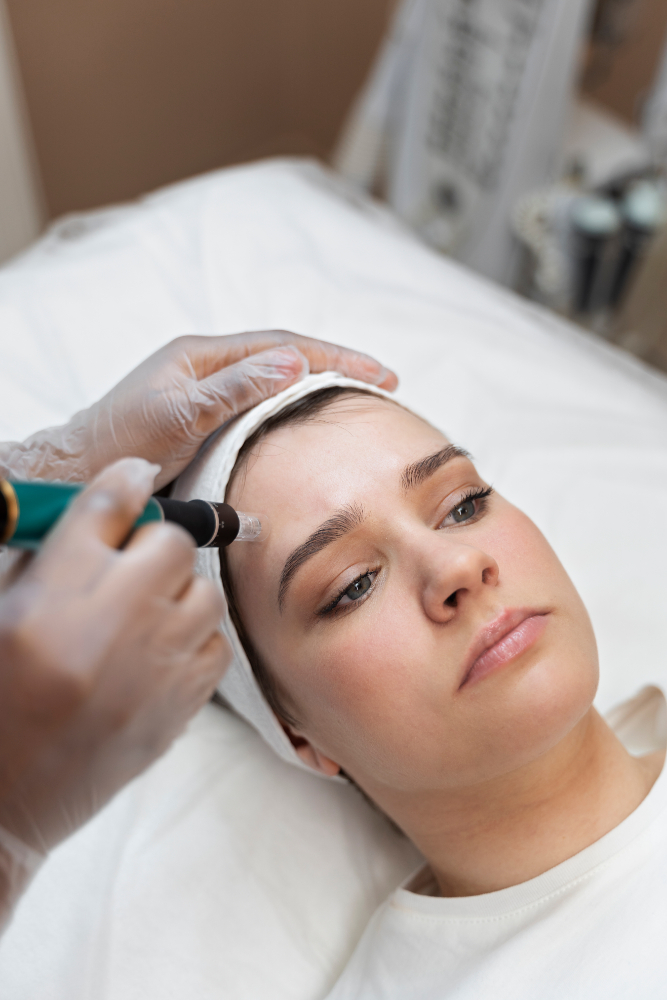Acne scars can be a persistent reminder of past breakouts, impacting self-esteem and confidence. Many individuals searching for a solution come across microdermabrasion, a popular non-invasive skin treatment for acne and scars. But does it actually help with acne scars? Let’s delve into the details.
Understanding Microdermabrasion
Microdermabrasion is a minimally invasive cosmetic procedure designed to exfoliate the outermost layer of the skin. It uses a specialized device to gently remove dead skin cells, promoting cell turnover and revealing smoother, healthier skin underneath. The treatment is quick, typically taking 30 to 60 minutes, and requires little to no downtime. It’s often recommended for individuals struggling with acne, scars, and uneven skin texture.

Types of Acne Scars
Before assessing the efficacy of microdermabrasion, it’s essential to understand the different types of acne scars:
- Atrophic Scars: These are depressed scars that form when the skin doesn’t produce enough collagen during the healing process. Examples include ice pick, boxcar, and rolling scars.
- Hypertrophic Scars: Raised scars caused by an overproduction of collagen.
- Post-Inflammatory Hyperpigmentation (PIH): Dark spots or discoloration left behind after acne heals.
Microdermabrasion is most effective for addressing post-inflammatory hyperpigmentation (PIH) and improving the texture of mild atrophic scars. However, it’s less effective for deep acne scars or hypertrophic scars.

How Microdermabrasion Works on Acne Scars
The procedure helps with acne scars in the following ways:
- Exfoliation: By removing the outer layer of skin, microdermabrasion promotes the growth of new, healthier skin cells, which can reduce the appearance of acne scars over time.
- Improved Circulation: The treatment stimulates blood flow to the skin, enhancing oxygen and nutrient delivery to the treated areas, which is beneficial for healing acne scars.
- Enhanced Product Absorption: Post-treatment, the skin is more receptive to topical treatments, such as serums and creams targeting acne scars and discoloration.
- Collagen Stimulation: Regular treatments can encourage collagen production, gradually improving the appearance of shallow acne scars.
What to Expect
Microdermabrasion for acne scars typically requires multiple sessions for noticeable results. Most people undergo 6 to 12 treatments spaced 1 to 2 weeks apart. The number of sessions needed depends on the severity of the acne scars and individual skin type.
The procedure is generally well-tolerated, with minimal side effects such as redness or slight swelling, which subside within a day or two.
Limitations of Microdermabrasion
While microdermabrasion offers significant benefits, it’s not a one-size-fits-all solution. Here are some limitations:
- Deep Acne Scars: For severe atrophic scars, treatments like laser resurfacing, chemical peels, or microneedling may be more effective.
- Raised Scars: Hypertrophic scars usually require steroid injections or other specialized treatments.
- Skin Sensitivity: People with very sensitive or thin skin may experience irritation after microdermabrasion for acne.
Combining Treatments for Better Results
For optimal results in treating acne scars, microdermabrasion can be combined with other treatments. For instance:
- Chemical Peels: Enhance exfoliation and target deeper pigmentation caused by acne scars.
- Microneedling: Stimulates deeper collagen production, which is beneficial for atrophic acne scars.
- Laser Therapy: Addresses deeper acne scars and discoloration more effectively.
A consultation with a dermatologist or skincare professional can help determine the best approach for your unique acne scar concerns.
Conclusion
Microdermabrasion is a valuable tool in the fight against acne and acne scars, particularly for mild cases and pigmentation issues. It’s safe, effective, and can be part of a comprehensive skincare plan. However, for deeper acne scars, additional or alternative treatments may be necessary.
If you’re considering microdermabrasion for acne scars, consult with a qualified professional to assess your skin and create a personalized treatment plan. With the right approach, you can take a step closer to smoother, scar-free skin and regain confidence in your appearance.
